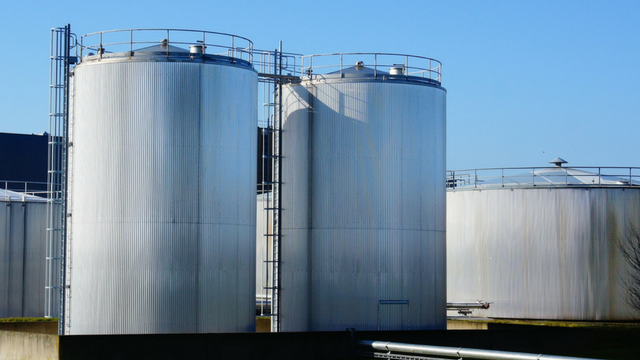Aboveground Storage Tanks
Facilities with aboveground oil storage exceeding 1,320 gallons must comply with federal SPCC regulations.
If you are the owner or operator of a qualified facility with aboveground oil storage tanks, you must inspect these containers for integrity on a regular basis in accordance with industry standards. Since 1974, EPA has required facilities that store oil above certain threshold quantities to prepare Spill Prevention, Control and Countermeasure (SPCC) Plans. Despite the length of time that SPCC requirements have been in existence, failure to prepare an SPCC Plan has been one of the top violations discovered by EPA when performing multi-media compliance inspections.
Why the Lack of Compliance?
Unlike many other federal regulations, most states do not have their own version of the SPCC regulation, and therefore, many facilities are unaware of the SPCC requirements. Also, the SPCC applicability threshold is much smaller (1,320 gallons) than some States’ thresholds for spill prevention plans. Further, many State requirements are significantly different than SPCC Plan requirements. Therefore, compliance with the State storage tank program requirements does not equate to compliance with the federal SPCC requirements.
Who is Affected by the SPCC Rule?
In general, facilities that store oil based products aboveground in quantities exceeding 1,320 gallons or underground in quantities exceeding 42,000 gallons, and can reasonably be expected to discharge oil into waters of the United States in the event of a spill, must prepare and implement an SPCC Plan. Some important applicability criteria include the following:
- All containers 55 gallons in size and greater must be counted toward the 1,320 gallon threshold. In addition to storage tanks, these include hydraulic fluid reservoirs, oil-filled electric transformers, drums, and totes.
- All oil based products – including heating oil, waste oil, mineral oil, vegetable oil and solvents – must be considered.
Major SPCC Requirements
Federal SPCC regulations require that affected facilities prepare and implement an SPCC plan. The following are some of the major requirements:
- All storage containers, including portable containers, must have secondary containment.
- Discharge prevention must be provided for tank loading and unloading areas, oil handling and transfer areas.
- Integrity testing must be performed for all bulk storage containers. In some cases, visual inspection will suffice.
- Security measures must be in place to protect tanks and their controls from unauthorized access.
- A written SPCC Plan must be prepared and certified by a licensed professional engineer.
- The plan must be re-evaluated every 5 years or each time a change is made to the facility that affects the plan.
- Formal, annual SPCC Plan Training must be provided to all oil-handling personnel.
For assistance in preparing and/or updating an SPCC plan for your facility, please contact us and we will connect you to individuals that can help.
GET YOUR SPCC PLAN REVIEWED TODAY!
Assistance
ATS Environmental can assist you in preparing, updating and implementing your SPCC Plans. Contact ATS Environmental today to discuss your facility’s requirements.
Helpful resources:
- For more information on general permits and air regulations, visit here.
- EPA Aboveground Storage Tank (AST) regulations. Learn more here.
- The STI (Steel Tank Institute) provides additional information regarding SP001 along with frequently asked questions (FAQ). See here.
- The New Jersey Small Business Environmental Assistance Program developed a guidance document to help Fuel Dispensing Facilities comply with regulatory requirements for the transfer of fuel.
Important Notes:
The New Jersey Fuel Dispensing Facilities Compliance Calendar may only be available as a download here.
Click here for PDF of EPA SPCC Program Fact Sheet.
Click here for PDF of EPA Chapter 7 Inspection Evaluation and Testing.
Areas covered by this service
- New York (NY)
- New Jersey (NJ)
- Pennsylvania (PA)
- Connecticut (CT)
- Maryland (MD)
- Delaware (DE)
- Virginia (VA)
Learn More About AST Compliance
SPCC Plans
Spill Prevention Control & Countermeasures Plan regulations, requirements and assistance.
Find out morePipeline Inspections
Learn more about what you can do to protect your pipelines and your product.
Find out more40 CFR 112
Do you store oil? Do you have bulk oil storage capacity? Find out if 40 CFR 112 applies to your facility.
Find out moreAPI Inspection
Find out what kind of inspection and how often you need one at your facility.
Find out more




